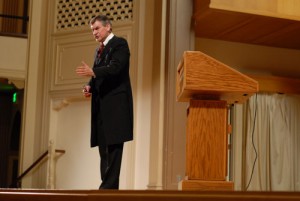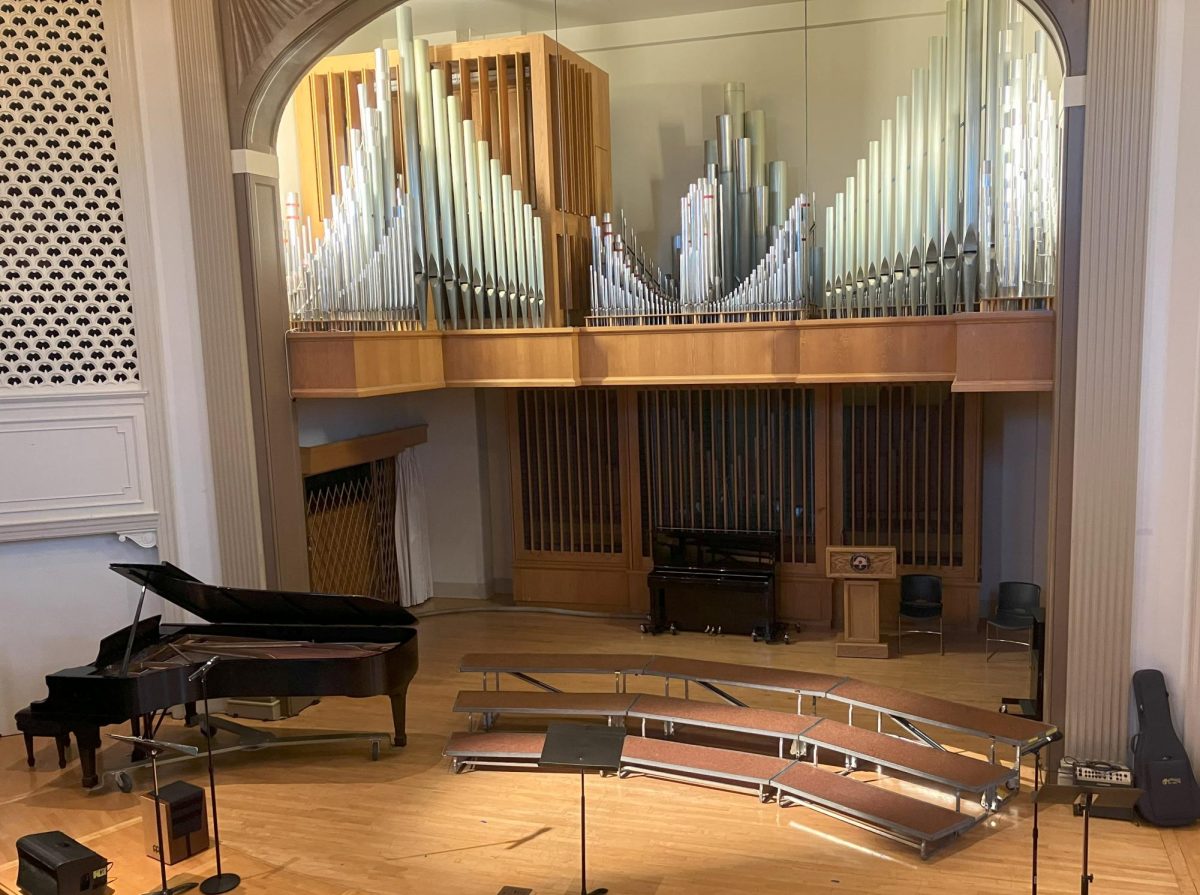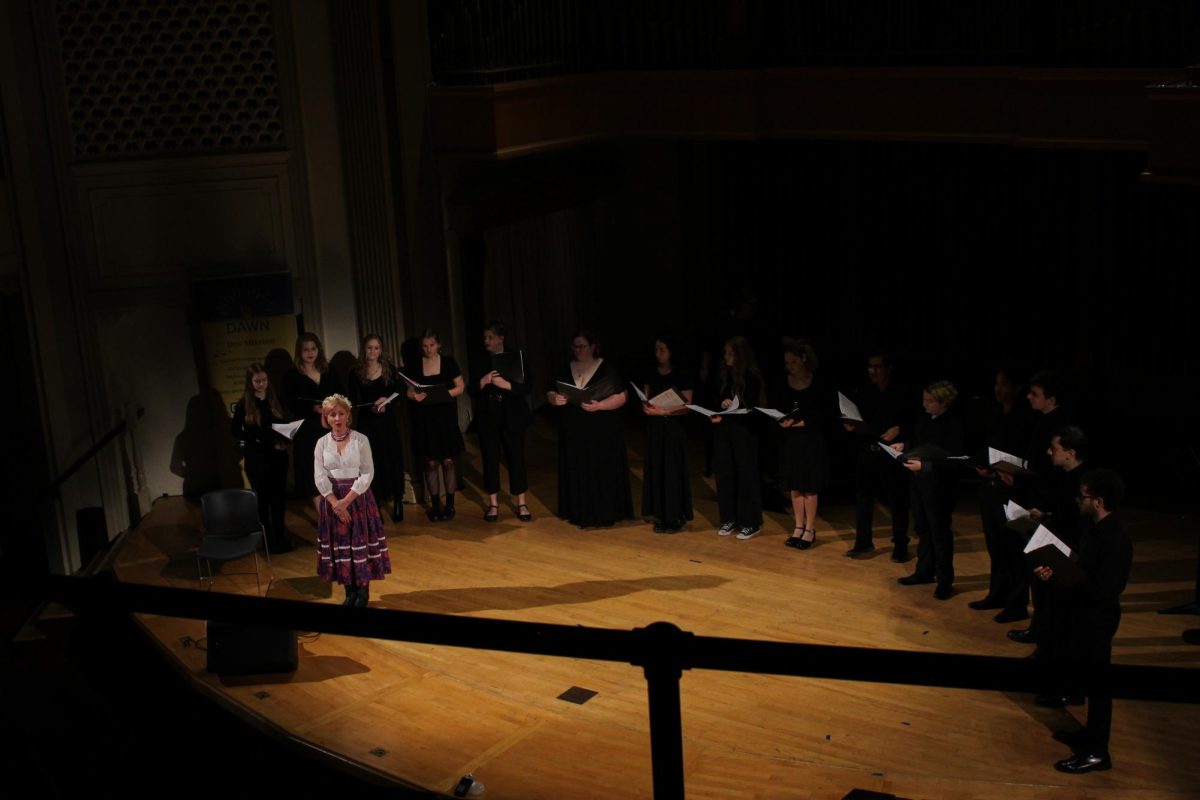
Katie Armes
Review staff writer
“Hope in a Time of Crisis: Rauschenbusch’s Christianity Revisited,” the 17th annual Frazee Symposium, focused on Walter Rauschenbusch’s ideas about the social gospel and how these ideas may be applied to circumstances in the world today.
The two-night presentation featured Al Staggs, as Walter Rauschenbusch, and Paul Raushenbush.
“We see today, in our current context in the world and the sort of things we are facing, that we’re not all that distant from the things that were happening at the turn of the 20th century,” Dave Massey, chaplain and assistant professor of religious studies, said.
On March 9, Staggs presented a one-person play portraying Rauschenbusch. Walter Rauschenbusch served as pastor of the Second German Baptist Church in a troubled area of New York from 1886-1897, and was a professor at Rochester Theological Seminary, where Massey attended.
Staggs emphasized the connection Rauschenbusch made between social sin and personal sin, recognizing that difficult economic conditions could drive desperate people to do things they would normally find unacceptable.
He also emphasized that both the church and all people had a responsibility to assist each other in times of need.
“Rauschenbusch wasn’t just flat out against capitalism,” Massey said. “He was ‘anti’ any system that was void of justice.”
On March 10, Paul Raushenbush, Walter Rauschenbusch’s great-grandson, lectured about how his great-grandfather’s work should affect peoples attitudes toward the current economic situation.
“The economic crisis is a wake-up to remind us that we are not spiritually or materially alone in the world, and we never were,” Raushenbush said.
He also spoke about the presence of the Kingdom of God on Earth. He said it isn’t necessary to wait to experience God on Earth, but that we need to work together to improve our world.
“The way God treats us depends on how we treat each other,” Raushenbush said, commenting that it’s not acceptable to be pious in church, but selfish in life.
After Raushenbush’s lecture, a panel with Nick Buccola, assistant professor of political science, Jeff Peterson, associate professor of sociology, senior Lizzie Martinez, Chaplain’s team member, and Janet Elfers, peace programs director at Ecumenical Ministries of Oregon, commented on his message.
Peterson commented on the irony of Rauschenbusch’s ideas about the interdependence of people as compared with individualism in America.
“We as a society can still say we blame individual land owners . . . in the face of a system that tries to get them into these large homes,” Peterson said.
Buccola compared Rauschenbusch to Frederick Douglas who encouraged action in society to create change, similar to Rauschenbusch.
Massey said the Frazee Symposium is one of the largest endowed lectureships at Linfield, and it is named after Gordon Frazee, who served as a professor of religious studies for more than 30 years and as Chaplain and Dean of Students at Linfield.






